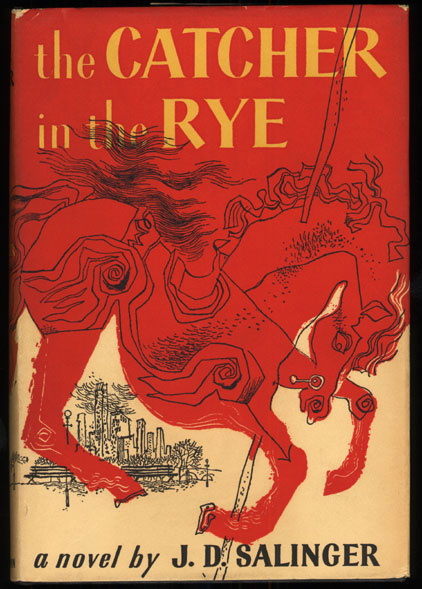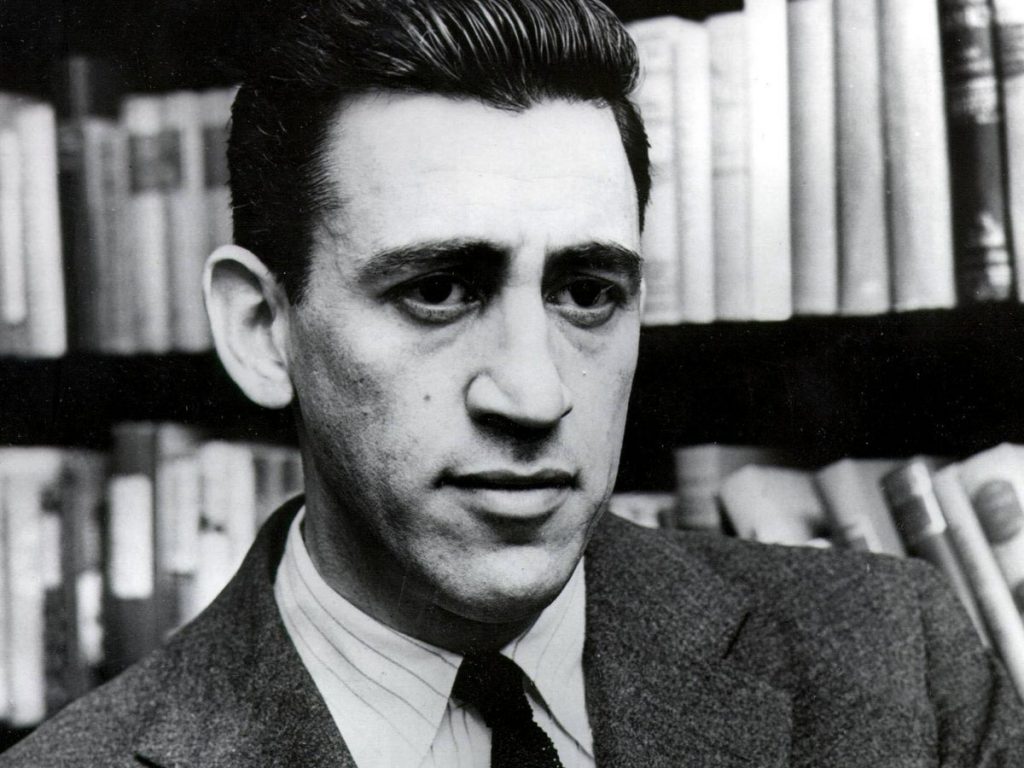The Catcher in the Rye, J.D. Salinger, USA, 1951
When Holden Caulfield quotes Robert Burns as saying “If a body catch a body comin’ through the rye” instead of saying “If a body meet a body coming through the rye”, he is, either consciously or subconsciously, describing his essence and, indeed, the very essence of the novel itself.

He may appear unruly and undisciplined (he has been expelled from a number of schools, and the novel begins with his expulsion from his latest school), but Holden, sixteen years old on paper and way older in his head, is basically decent, even if some readers could find him somewhat irritating. Commenting on the poem with his younger sister, Phoebe, he says that he sees himself catching the children playing in the rye, stopping them from falling off the cliff or coming to harm. Life for Holden is wrapped around the need to help and protect other people, especially his little sister. He is a genuine type of person and he dislikes anything, or anyone, that is fake or false. He does not like the film industry and cannot understand why his older brother (a writer) is wasting his talents there as a film writer.
The novel, in the first person, spans the space of two days as Holden talks about his escape from his latest school and his journey back to New York. It becomes apparent that he is juggling his life between the expectations of extremely strict and anxiety-prone parents and the love he feels for his siblings (one of them deceased). While Holden recounts his story, the reader is placed somewhere in Holden’s head, regarding the world through his eyes while being swept up in the language of a sixteen-year-old, a language that, in spite of many vulgarities, has a depth of understanding and feeling far beyond what one would expect from a teenager.

Finally, Holden remarks that he has told his story so many times that he no longer knows what to think about it. All he knows is that he misses all the people he has mentioned: “Don’t ever tell anybody anything’, he says at the end. ‘If you do, you start missing everybody.’
For many, this beautiful, heart-wrenching, honest story is relegated to a box labelled ‘coming-of-age’, but I feel that it is ever so much more. The protagonist may be sixteen years old, but the message of the book – the part other people play in our lives and our happiness – and the intelligent way in which Salinger imparts this message place the book on a completely different level and definitely in a completely different box.